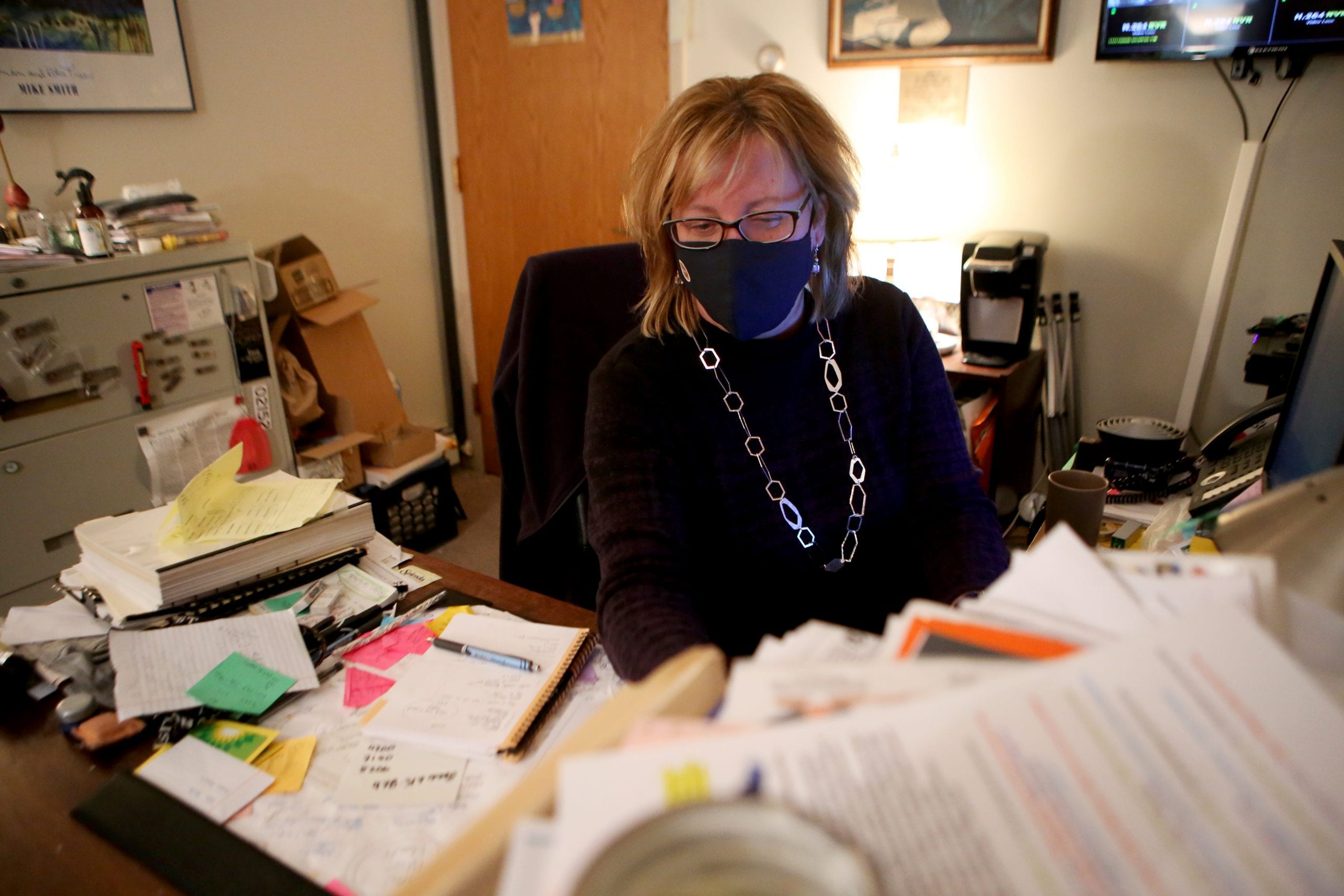LYNN — For public health activists, there are shades of the AIDS epidemic in the public health crisis the world is facing today.
My Brother’s Table Director Dianne Kuzia Hills worked with vulnerable communities during the AIDS epidemic, and saw how both viruses affected the poor and homeless populations more severely.
“It reminds me a lot of those times,” she said. “There’s a double standard — if you’re well-educated and well-resourced, you get one type of care, and if you’re under-resourced, you can’t get the type of care you need,” said Kuzia Hills.
“That was true during HIV/AIDS times too. It’s very different if you’re not wealthy. There’s two different systems of health care in this country, and the pandemic has made that very clear.”
Both epidemics put a strain on the system, and without significant intervention from the national government, public health centers struggled to get the resources they needed.
“There was no government response to AIDS and I’m not excited about the response to COVID either,” said Gary Langis, who ran an underground syringe exchange program in Lynn during the AIDS crisis.
He now works with the Boston Medical Center on a study to reduce fatal overdoses, where he has gotten a firsthand view of how the COVID-19 pandemic has affected the most vulnerable populations.
“There was no national plan for AIDS, and there’s no national plan for COVID either,” he said.
Langis was working in the car business in the mid-’80s when the AIDS epidemic struck Lynn hard.
“People were just dying really fast. It’s another similarity with COVID,” he said. “I wasn’t a big numbers guy back then, but I know we got devastated. You’d see someone one day and the next day they’d be dead. I was pretty fortunate I didn’t catch it because everyone around me did.”
Langis was a drug user in those days, so his circle was more at risk of contracting the virus. When his wife contracted it, he was spurred to get involved in stopping its rampant spread through Lynn.
“That’s when I started to do the syringe exchange, and I just made a commitment to do it,” he said. “You’re trying to stop a disease that’s killing people, and the only thing that works was getting them clean syringes.”
Since possession of hypodermic needles was illegal, Langis and other participants in the syringe exchange program could face huge penalties if caught.
“I’d do home delivery in Lynn and the North Shore, always working at night. People would page me and I’d go to their homes and get them syringes,” he said.
One night he left a house after a delivery to find the police waiting for him and he was charged with distribution of needles.
“At first, they wanted to give me like 100 years, one for each syringe,” said Langis. “I said, ‘I don’t care, I’ll do the years.’”
After a trial, Langis was eventually cleared of the charges.
Kuzia Hills also struggled to get the necessary resources to people in need during both crises.
During the AIDS crisis, the Harvard School of Health was conducting a study where it provided education, syringes and condoms to certain communities to test the effects of those measures on AIDS infection rates.
Lynn was considered a control community in the study, so it didn’t get any of this support.
“I remember how that felt,” she said. “It was sort of like, fend for yourself. We have these resources over here, but you can’t use them.”
In the early days of COVID-19, without any clear government plan and limited access to equipment, Kuzia Hills and her volunteers at My Brother’s Table were forced to work without masks and couldn’t access testing.
In both eras, a huge part of the job of public health officials was to battle a tide of misinformation.
“People didn’t really understand how AIDS was transmitted, which you know is like COVID,” said Kuzia Hills.
“The thing that’s really similar is just the stigma. Somebody’s always dirty,” said Langis.
“You don’t need to have a bad behavior to get COVID, you can just be in the wrong place at the wrong time, take a breath and see you later. But it’s still a lot of stigma.”
Both Kuzia Hills and Langis also see the epidemics as moments where the Lynn community came together to care for one another.
“We took care of each other back then,” Langis said. “Groups of women working in the sex industry would be buying medication for one of their friends if they had it. And they took care of them until they died. I know that drug users care about each other.”
“We’re a small city, so in some ways we’re stronger than other communities,” said Kuzia Hills. “We can pool our resources together and figure out how to make it work. We did that with AIDS and we’re doing it with COVID as well.”
Guthrie Scrimgeour can be reached at [email protected].

